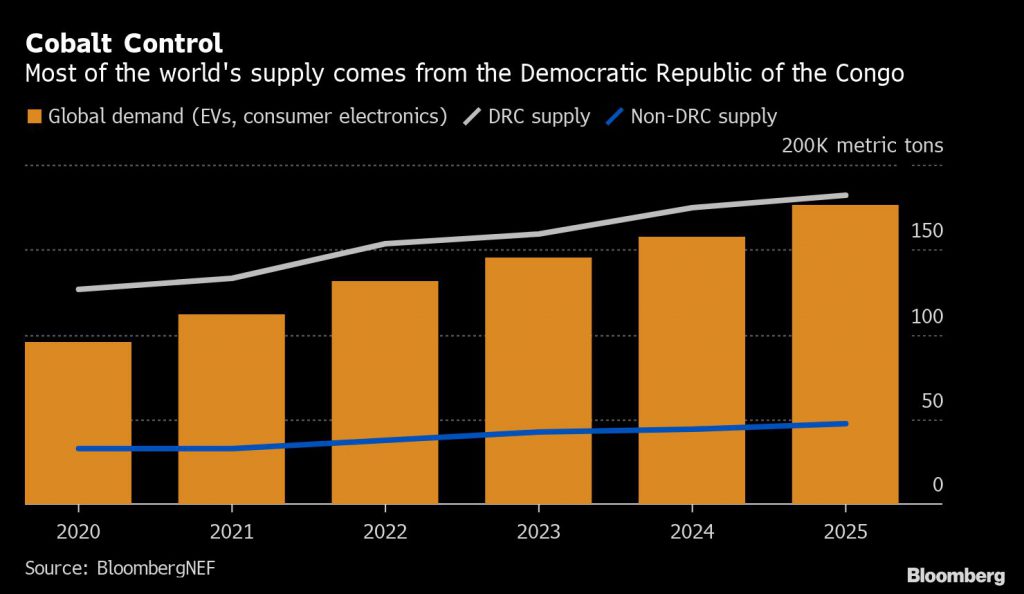It added that, once the acquisition is completed, it would kick off a feasibility study to restart the refinery, including the processing of Idaho concentrate.
Jervois Mining has been on a buying spree to build itself into a supplier of materials outside of China, which dominates the electric vehicle supply chain.
In June last year, it closed a deal to buy M2 Cobalt Corp, which has operations in Uganda. A month later, it acquired Canada’s eCobalt Solutions through which gained ownership of the Idaho cobalt project, one North America’s top proposed cobalt mines.

The Democratic Republic of Congo (DRC) produces about 70% of the world’s cobalt, but industry’s clients — mainly electric car makers and batteries producers — have become concerned by reports of unethical practices in the country’s mines.
Child labour is particularly widespread at informal, artisanal mines, where cobalt is often dug by hand.
The situation has boosted the search for deposits of the metal in other jurisdictions, considered “safer”. It has also motivated the creation of global initiatives to monitor and improve artisanal cobalt mines in the DRC.
Eyes on Idahoe
Jervois also unveiled on Tuesday the results of a bankable feasibility study (BFS) into its Idaho project, confirming its low cost cobalt-copper-gold mine potential. The study indicates “significant” opportunities to increase the mineral resource and extend the mine reserves once mining starts.
Based on a processing rate of 1,200 tonnes per day, the project could produce 1,915 tonnes cobalt, 2,900 tonnes copper and 6,700 ounces of gold annually, over a mine life of seven years.
Idaho is estimated to require a capital investment of $78.4 million and will have an operating cost of $7.45 per pound of payable cobalt.
Jervois believes the imminent acquisition of the Sao Miguel Paulista nickel and cobalt refinery together with existing offtake negotiations, would give it much needed flexibility to convert Idaho concentrates into refined products destined mainly to the US market.




